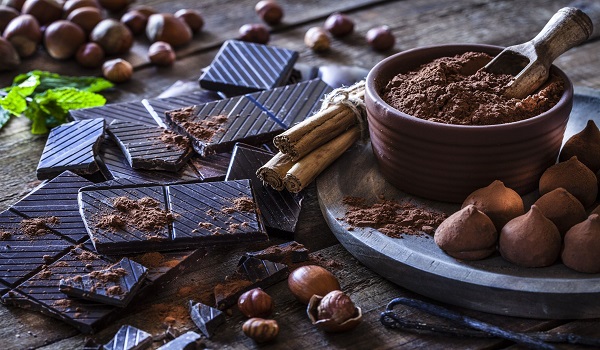In a notable shift fuelled by heightened health awareness, dark chocolate is poised to become the fastest-growing segment in the Indian chocolate market. Local brands are responding to consumer preferences, focusing on high-quality dark chocolate, particularly in the wake of the pandemic where health takes precedence. According to California-based Dr. Bharat Rakshak, DDS, MDS, high-quality dark chocolate can offer antioxidants, enhance heart health, and potentially uplift mood through compounds like flavonoids and theobromine.
The historical trajectory of chocolate, dating back 4,000 years to ancient Mesoamerica, has seen its transformation from a ritualistic and medicinal use among early chocoholics to a global industry now valued at around $127.7 billion in 2023. Forecasts suggest promising growth, with the market expected to reach $165.4 billion by 2032, indicating a CAGR of 4.4% in the forecast period of 2024–2032. In 2021, Mondelez held the largest market share in India at close to 60%, followed by Nestlé with around 15%.
The Indian chocolate market, totalling Rs 15,512 crore in 2022, is experiencing a surge in the dark chocolate category due to its perceived health benefits and increasing consumer awareness. Euromonitor estimates the segment to reach Rs 23,700 crore by 2027.
Professor John Dumay from Macquarie Business School emphasizes the superfood qualities of unprocessed chocolate, particularly endorsing dark chocolate with 70% or greater cocoa content. Despite milk chocolate’s current dominance in India, dark chocolate holds approximately 10% of the market share and is expected to witness the fastest growth.
Several local brands are capitalizing on this trend, aligning with the growing awareness of potential health benefits. Amul, for instance, has been at the forefront of the dark chocolate revolution in India, offering a range from 55% to 99% cocoa content. According to Jayen Mehta, MD, of Amul, the dark chocolate category is expanding due to increased awareness among young adults, fitness enthusiasts, athletes, and individuals with specific dietary restrictions.
While dark chocolate is often considered a superfood globally, India faces limitations in labelling it as such due to regulatory constraints. The Food Safety and Standards Authority of India (FSSAI) does not have a category for ‘superfood,’ and globally, the term lacks an official definition by regulatory authorities.
Despite these labelling challenges, dark chocolate continues to be celebrated for its high cocoa content and potential health benefits. Dr. Bharat Rakshak underscores that a cocoa content of at least 70% ensures more antioxidants and less sugar, making it a popular choice among health-conscious consumers. Clinical dieticians further affirm that dark chocolate, rich in flavonols and essential nutrients, aligns with the criteria of a superfood, offering benefits for both mental and physical well-being.


